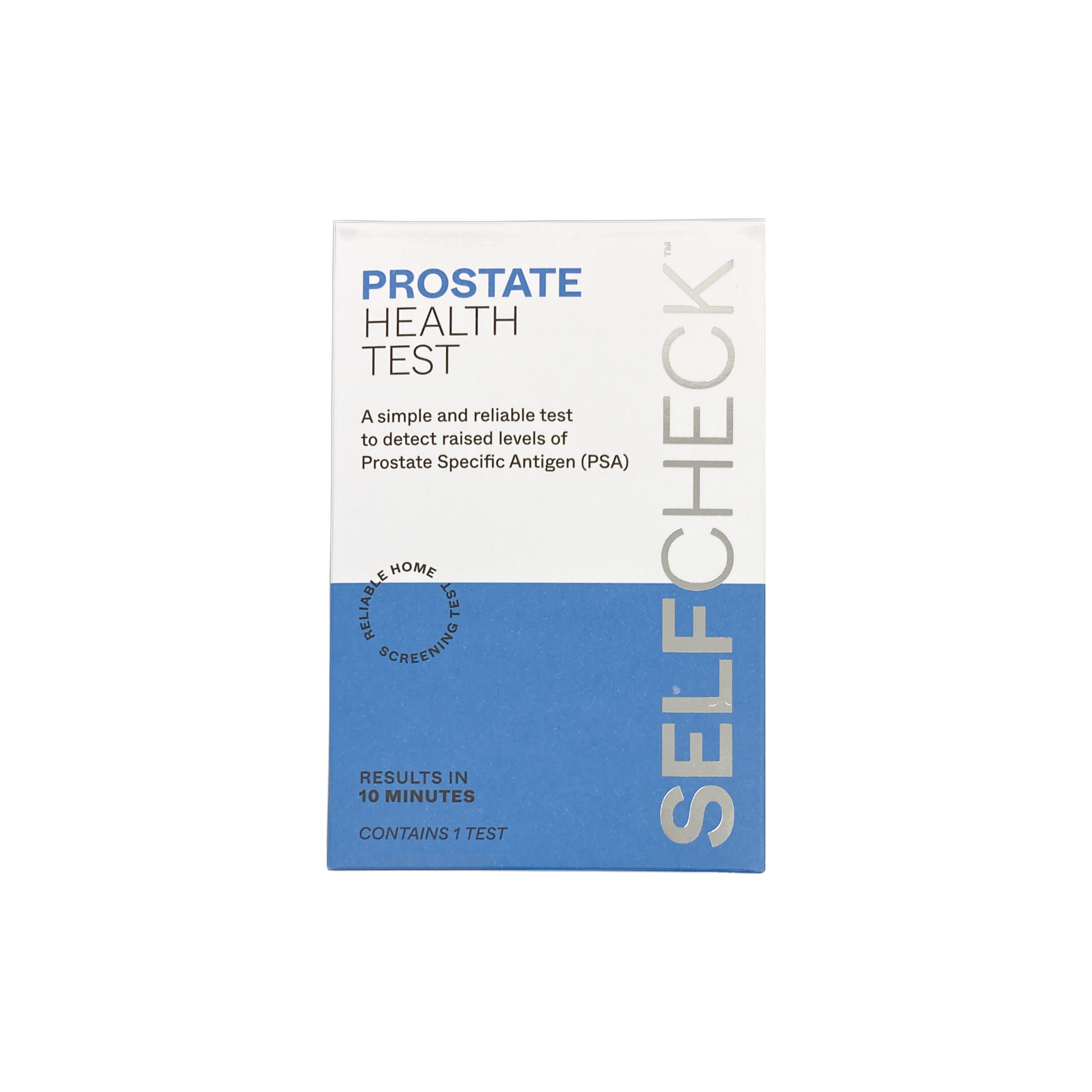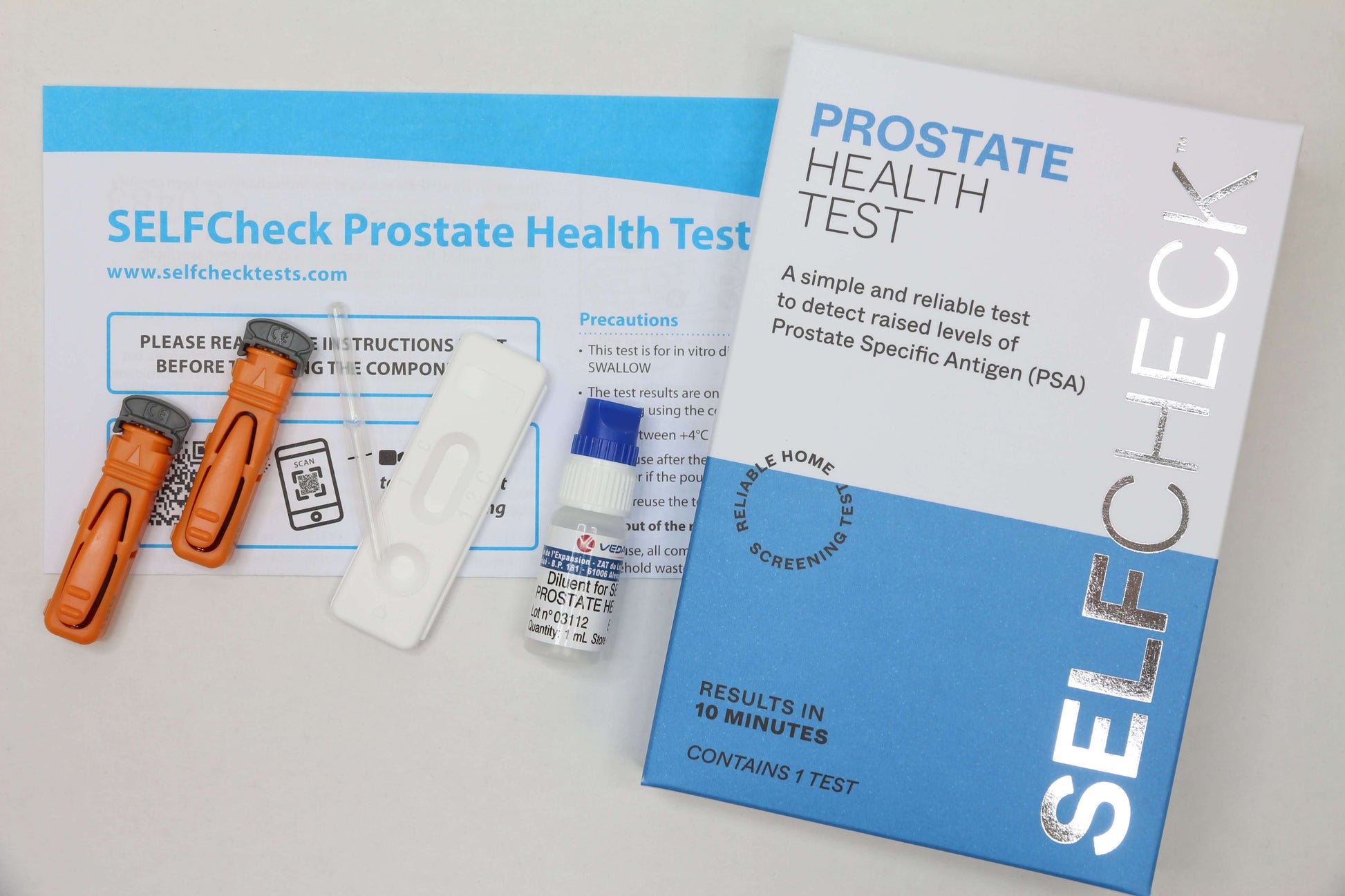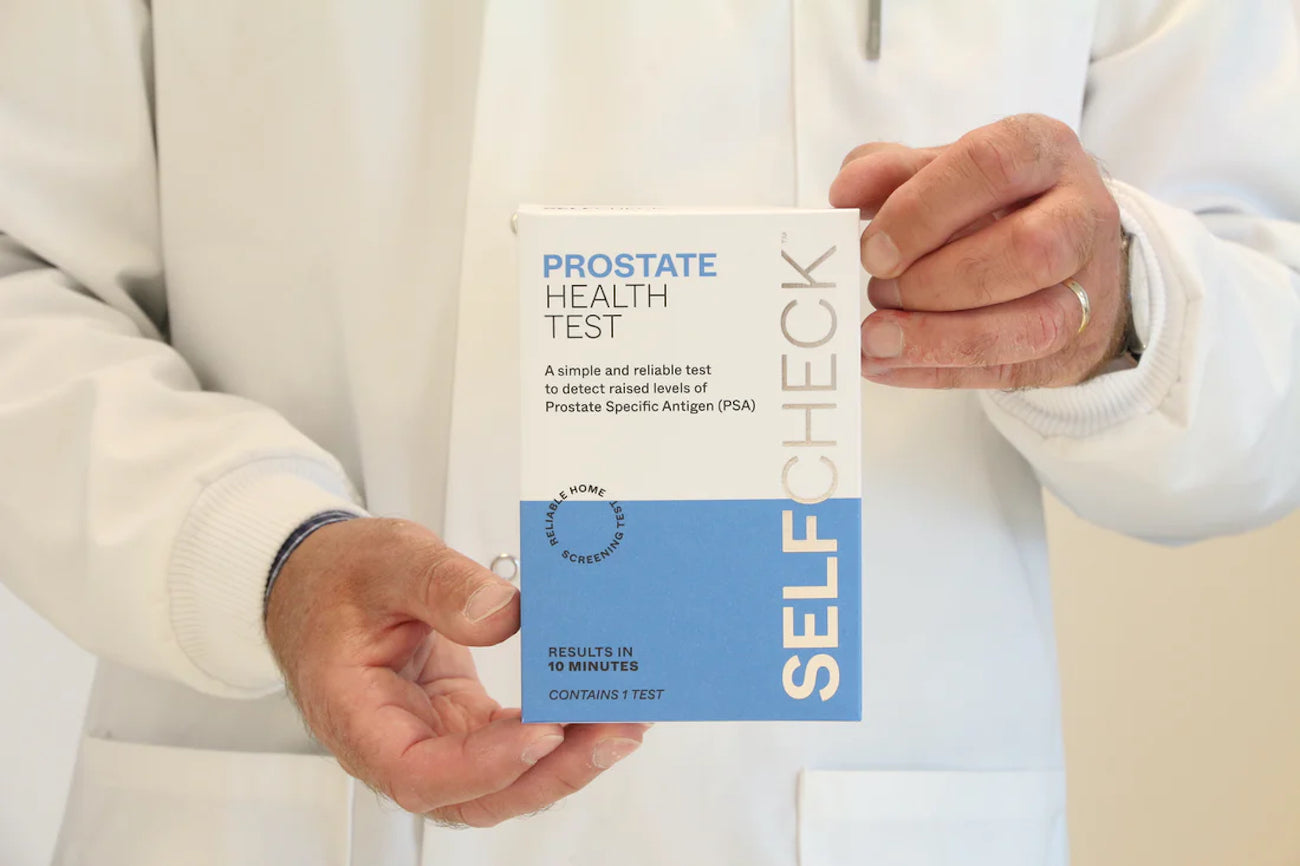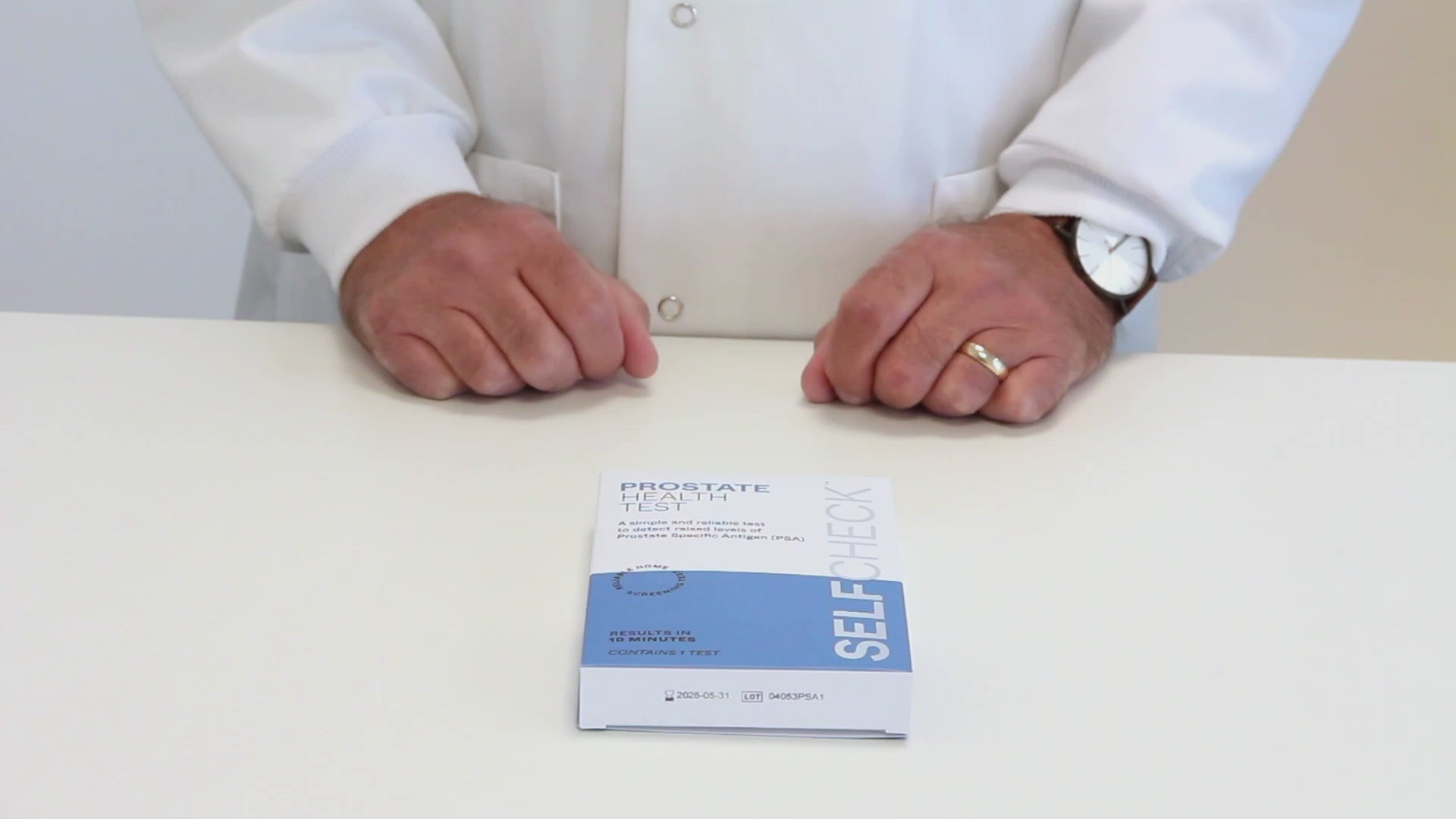SELFCheck
SELFCHECK Prostate Health Test
SELFCHECK Prostate Health Test
FREE UK delivery on orders over £30
FREE UK delivery on orders over £30
Order before 2pm Mon to Fri for same day dispatch (except holidays). All orders dispatched in plain packaging.*
Couldn't load pickup availability
The SELFCHECK® Prostate Health Test measures the level of prostate specific antigen (PSA) in your blood. PSA is a protein made by the prostate gland and is naturally secreted at low levels into the blood stream. A raised PSA level may be a sign of prostate cancer but is more likely to be a sign of another condition, such as an enlarged prostate, prostatitis, or a urine infection.
The test requires a finger-prick blood sample and gives a result in 10 minutes.
All the components necessary to perform the test are included in the test kit, together with an easy-to-follow instruction leaflet written in clear English.
Who is the test for?
There is a higher risk of developing prostate cancer in men over 50, those with a family history of prostate cancer, or are of black ethnic origin.
Contraindications
This test can be used at any time of the day, although testing should be delayed following activities such as cycling, ergometry, ejaculation, prostate massage, transrectal ultrasound, cystoscopy or prostate transurethral resection. Further information is provided in the instruction leaflet with your test.
Accuracy
The SELFCHECK® Prostate Health Test shows 97% overall agreement with hospital laboratory tests for the detection of PSA. The test gives a positive result when the PSA level in the blood is 4ng/mL or higher.
Before You Test
It's important that you appreciate the potential benefits and limitations of PSA testing so that you can decide whether or not you want to test.
Benefits
- May provide reassurance if the result is normal
- Can help find early signs of prostate problems, potentially including cancer, allowing for earlier medical advice
- For some men, regular PSA testing may contribute to detecting prostate cancer at an earlier, more treatable stage
Limitations
- PSA tests are not 100% accurate for diagnosing cancer; it can miss some prostate cancers and may give a false sense of security
- A positive result can cause anxiety and lead to further tests which may show no serious problem
- The test cannot distinguish between slow-growing cancers that may never cause harm and aggressive cancers that need immediate treatment
- It may identify a slow-growing cancer that wouldn't have caused issues, potentially leading to unnecessary treatment
Further information on the pros and cons of PSA testing can be found in the UK Government Guidance on PSA testing
How to use your test
- Prepare: Wash your hands
- Collect Sample: Use the sterile lancet provided for a simple finger prick
- Apply Sample: Place the blood sample onto the test device
- Add Solution: Add the buffer solution as directed
- Read Result: Your result will appear in 10 minutes
Full, easy-to-follow instructions are included in every kit.
Understanding Your Result
The self-test takes just over 10 minutes to complete, and will give you a simple yes or no result as to whether the PSA level at the time of testing is in the normal range, or higher.
You may be anxious about testing but remember, a PSA test is just a tool to give you information, not a final diagnosis.
Positive result
If the result is positive, it means that the PSA level in your blood is higher than normal (4ng/mL). There are many reasons why you might have raised levels of PSA and you should speak with your GP to discuss your result. Your doctor will perform a full clinical assessment to understand what this result means for you and determine the next steps, which may include further tests by a hospital laboratory. Please take the instruction leaflet with you to your appointment, as it contains important information for your doctor.
Negative result
If the result is negative it means that the PSA level in your blood is in the normal range (less than 4ng/mL). However, all medical tests can have false negative results. If you have symptoms that concern you, or if you are in a high-risk group for prostate cancer, then you should still speak with your doctor.
Further help
If your result is inconclusive, or you are unsure whether you have used the test correctly, and would like us to check your interpretation of your result, contact details for our UK based self-test experts are included in the instruction leaflet provided with your test.
Information for health care professionals
Principle, performance data, and regulatory information on the SELFCHECK Prostate Health Test for health care professionals.
Benefits of SELFCHECK®
- Fast, Clear Results: Get a visual result in just 10 minutes. Easy to read and understand
- Simple to Use: Requires only a small finger-prick blood sample using the kit provided
- Accurate Results: 97% agreement with laboratory tests*
- Clinical use: This device has been used in hospital laboratories by health care professionals for over 10 years
- UK Assembled: Our tests are assembled in the UK to high-quality standards
- CE Certified and MHRA Registered: Meets the strict UK regulatory standards for self-testing at home
- Professional Customer Care: Easy to contact our experts if you need any help with the test
Our research into new PSA tests
We are currently working on a project with the NHS to help patients to check their PSA levels at home.
*Refers to overall agreement of the SELFCHECK Prostate Health Test with a hospital laboratory prostate specific antigen (PSA) test (COBAS/VIDAS systems), and not to the diagnostic efficiency of PSA for diagnosing prostate cancer.
Revision 16th July 2025.
Before you decide to test
Before you decide to test
Before deciding to test, it is important that you understand the limitations of medical tests in general, as well as self-testing kits.
Make sure that you have considered what a result will mean to you before you take a test.
We also want you to be aware that no biomarker, even when checked by your hospital lab, is 100% perfect at diagnosing a specific medical condition. Because of this, a false positive result may cause unnecessary worry and further investigations, whilst a false negative result may give you peace of mind, when actually there may be an underlying condition that requires treatment.
Rather than purchasing a self-test kit, you may therefore wish to speak with your NHS GP first, who can arrange for tests if needed.
What SELFCHECK users say
What SELFCHECK users say
We invited SELFCHECK customers to tell us about their experience with their SELFCHECK test.
- 4/5 overall rating
- 9/10 easy to read instructions
- 4/5 thought that using the test was worthwhile
"All appeared good and instructions easy to follow"
"Everything was easy to follow"
"Very satisfied with your service"
"Simple enough, just had to check the instructions a couple of times"
The survey was completed in the Summer of 2024 of 118 random respondents who purchased one of our SELFCHECK tests. All customers are provided with contact information for our customer care team with their test, if they need any help to use their SELFCHECK test, or help to interpret their results.
For further information on how the scores were calculated please contact SELFCHECK.
Information for doctors
Information for doctors
SELFCHECK has been a leading British brand of health checks for over 10 years.
At SELFCHECK, we're working hard to make self-testing better for your patients. All our medical tests are assembled at our quality assured (ISO13485) medical device facility in the UK, and registered with MHRA according to UK medical device regulations IVDD/IVDR.
We are working closely with the NHS and academia to develop new diagnostics at our own UK R&D labs, particularly in the areas of sepsis, and the monitoring of chronic diseases.
Our professional customer care team provide help for your patients, so they can fully understand how our tests work, and how they should be used.
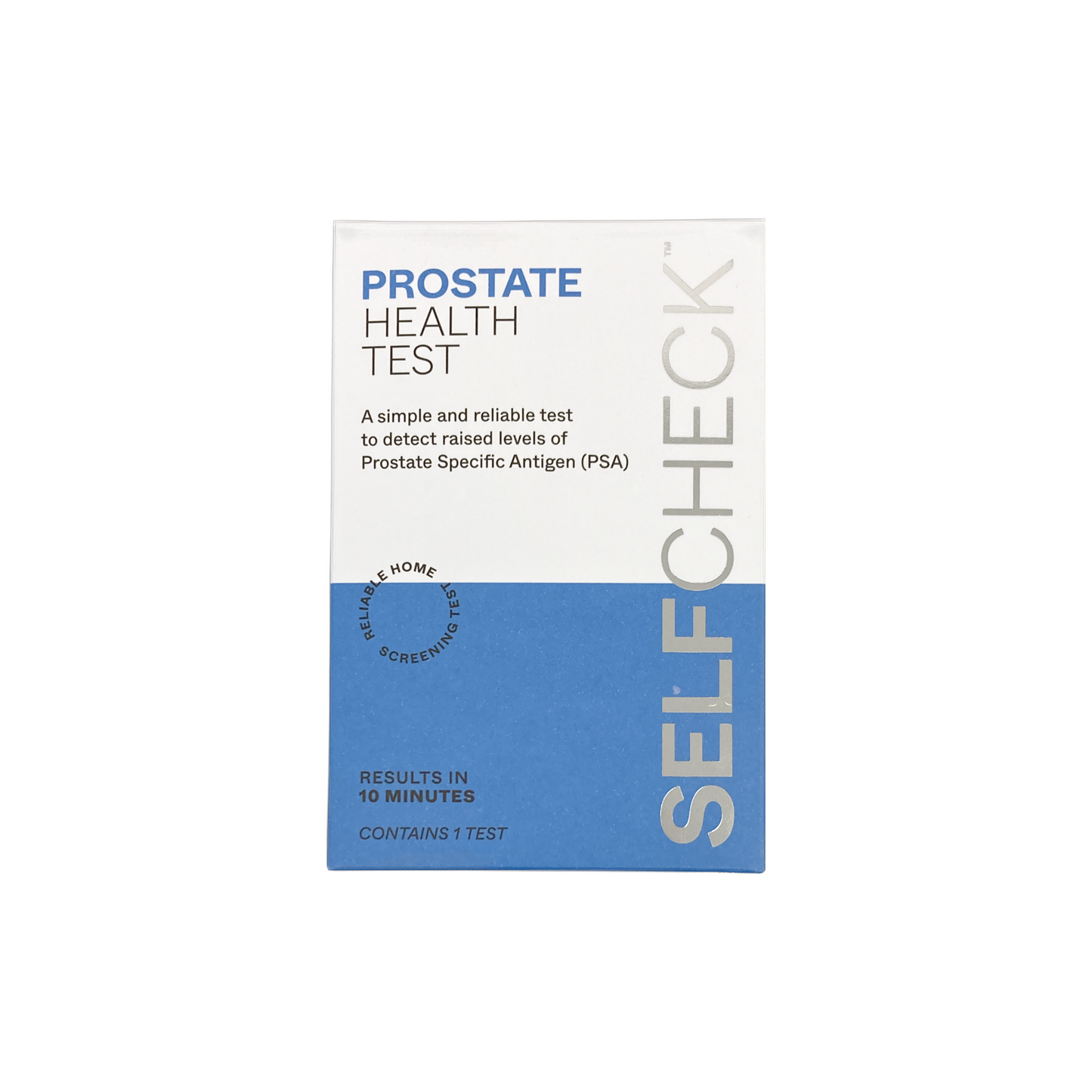
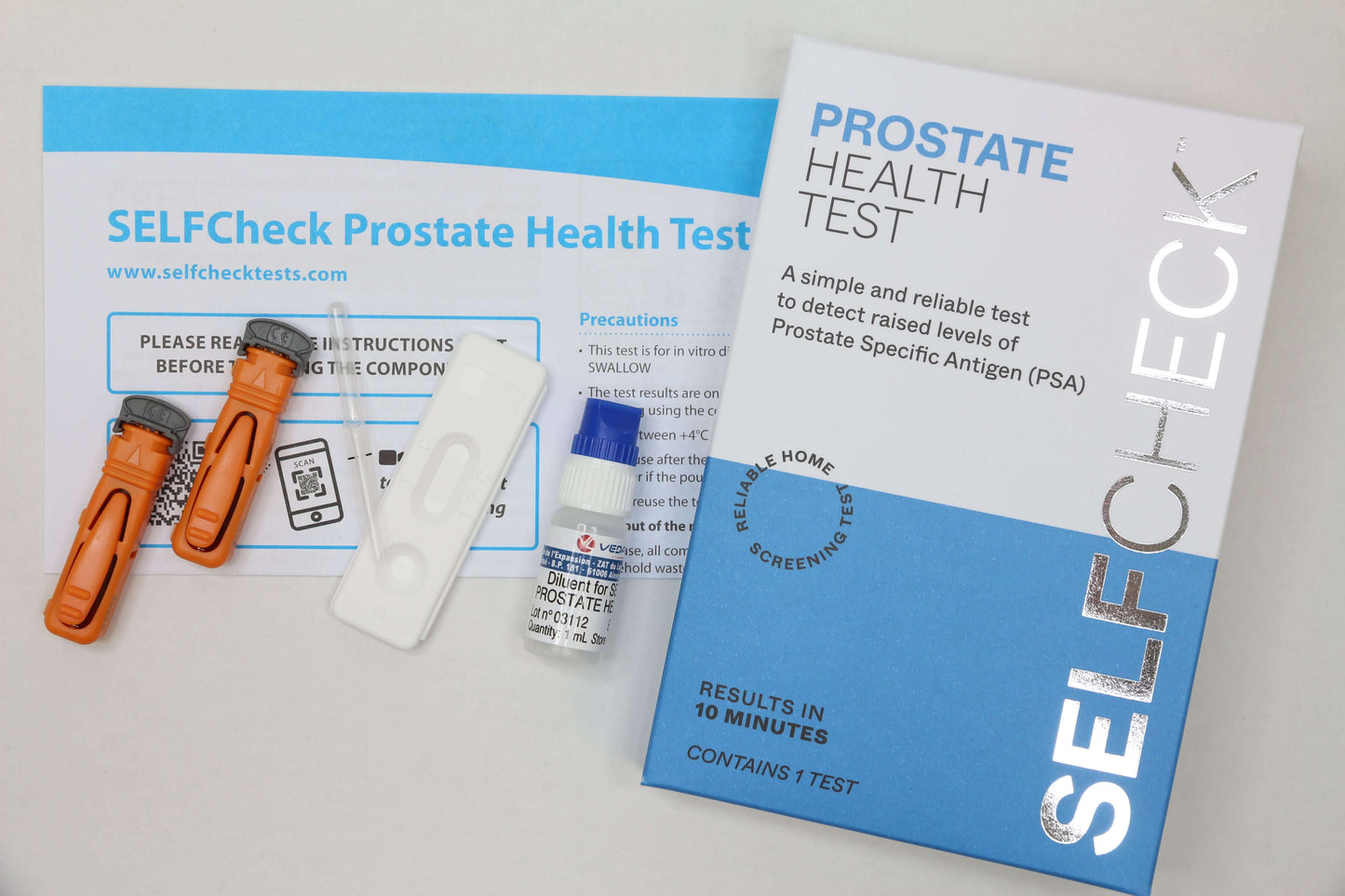
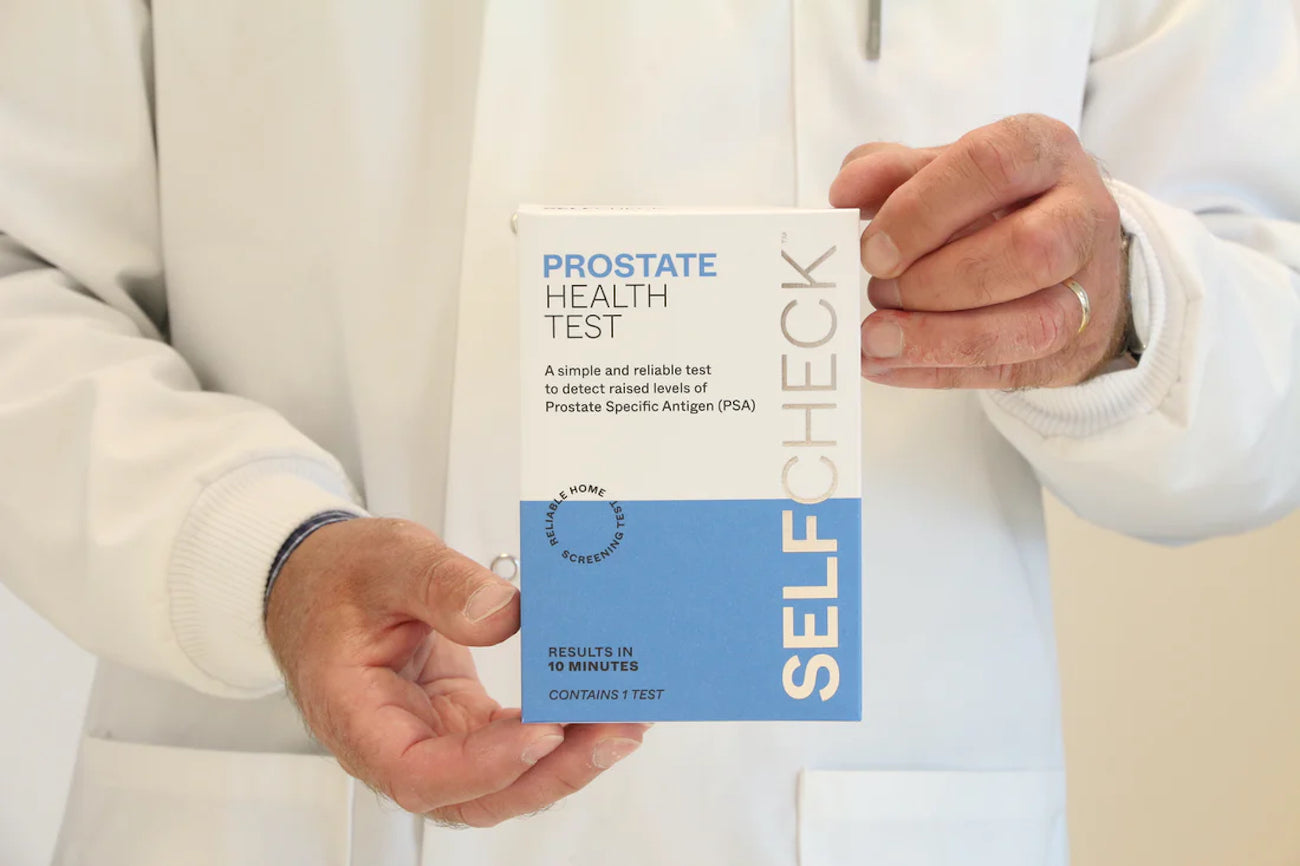
Important to know
All SELFCHECK branded tests are assembled by us in the UK at our ISO13485 certified manufacturing and R&D facility. Our medical tests are also CE certified according to UK and EU regulations, and registered with MHRA as self-testing devices.
Our tests are based on the same principles used by hospital labs, and provide reliable, meaningful results, but self-testing is not meant to replace established NHS healthcare pathways. Always consider what a positive or negative result will mean to you before testing, and be aware of the limitations of the test you are using.
If you have symptoms that concern you, always speak with your pharmacist or doctor.

